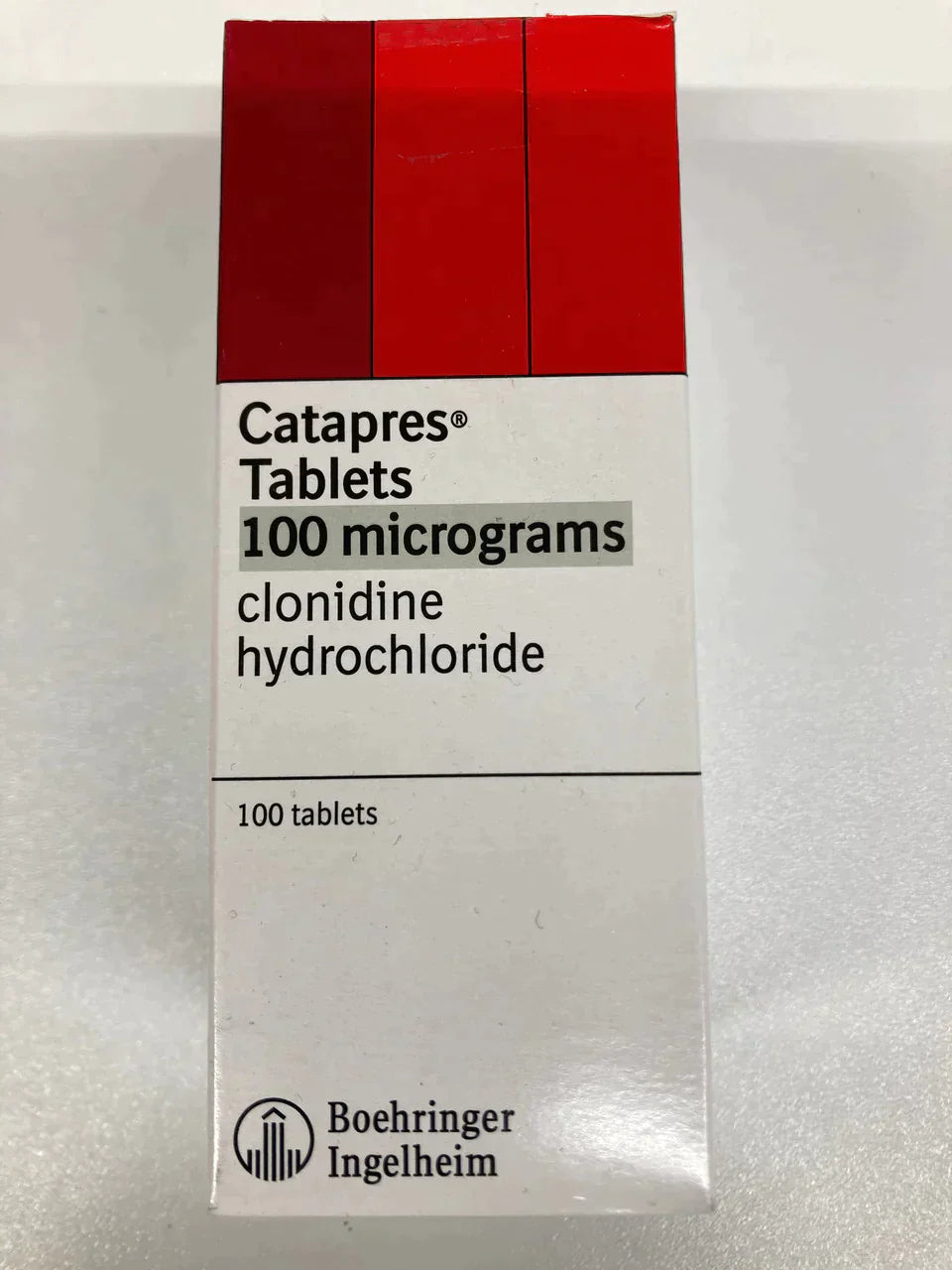Catapres: Uses, Side Effects, Interactions

Related products
Catapres

What are the benefits of Catapres?
The primary advantage of Catapres is that it may lessen menopausal-related hot flashes. Catapres may also assist in lowering high blood pressure.
What are the risks of Catapres?
Drowsiness is one of Catapres' most frequent side effects. Constipation, dizziness, and dry mouth are some additional possible side effects. Low blood pressure is another side effect of catapres, which can be dangerous for some people. Stop taking Catapres and contact your doctor right away if you experience any severe side effects.
Pharmacokinetics
Clonidine is quickly absorbed from the gastrointestinal tract after oral administration, with peak concentrations appearing 1 to 2 hours later. About 50% of clonidine is bioavailable. With a volume of distribution of roughly 3 L/kg, clonidine is widely distributed throughout the body. In the liver, clonidine is extensively metabolized through oxidation and conjugation. The main metabolites have lost their activity. Most of the conjugates of clonidine that are excreted in the urine are. Clonidine has a 12-hour half-life in the body.
Mechanism of Action
The stimulation of alpha-adrenergic receptors in the brain stem by conidine has an antihypertensive effect by decreasing sympathetic outflow to the peripheral vessels, which lowers total peripheral resistance and blood pressure. Similar to other centrally acting alpha-agonist medications, clonidine also has effects on the central nervous system (CNS). Sedation, a decrease in autonomic outflow, a decrease in motor activity, and adjustments to the seizure threshold are a few of these. Clonidine also prevents juxtaglomerular cells from releasing renin.
Dosages
Catapres' starting dose is typically 0.1 mg administered twice or three times daily. The dose may be raised gradually as required, up to a daily maximum of 0.6 mg. It is important to take your catapres on time and at regular intervals. You should take the missed dose as soon as you remember. You should skip the missed dose and carry on with your regular dosing schedule if your next dose is almost due. Two doses shouldn't be taken at the same time.
Long-term effects
The long-term side effects of catapres include drowsiness, constipation, and dizziness. Low blood pressure is another side effect of catapres, which can be dangerous for some people. Stop taking Catapres and contact your doctor right away if you experience any severe side effects.
Interactions
Tricyclic antidepressants, barbiturates, blood pressure medications, and other medications all may interact with catapres. Before taking Catapres, you should discuss any possible interactions with your doctor.
Pregnancy and breastfeeding
Use of Catapres during pregnancy is not advised unless the advantages outweigh the risks. You should discuss the potential risks of taking Catapres with your doctor if you are pregnant or intend to become pregnant. If Catapres enters breast milk is unknown. Ask your doctor about the potential risks of taking Catapres if you're breastfeeding.
What else should I know about Catapres?
The drug catapres was initially accepted for the management of high blood pressure. Hot flashes related to menopause can occasionally be treated with catapres. It is important to take your catapres on time and at regular intervals. You should take the missed dose as soon as you remember. You should skip the missed dose and carry on with your regular dosing schedule if your next dose is almost due. Two doses shouldn't be taken at the same time. Tricyclic antidepressants, barbiturates, blood pressure medications, and other medications all may interact with catapres. Before taking Catapres, you should discuss any possible interactions with your doctor.













 Rated Excellent by 26,523+ Reviews
Rated Excellent by 26,523+ Reviews